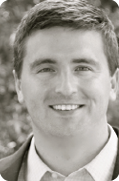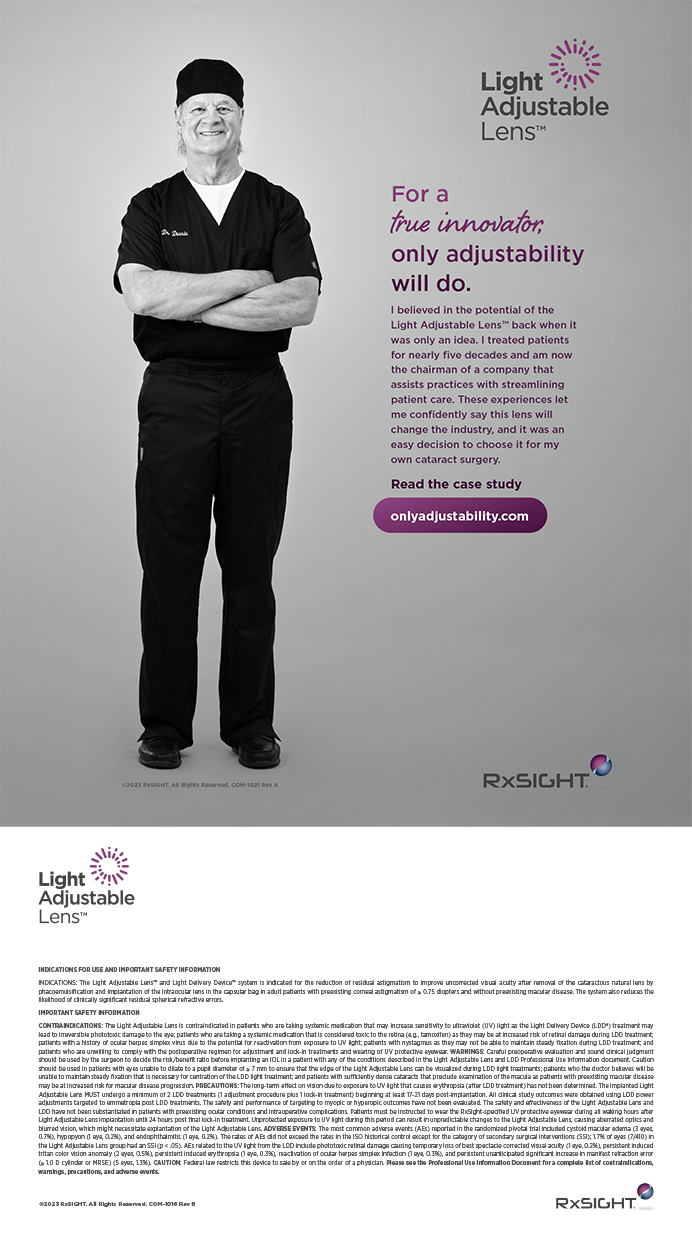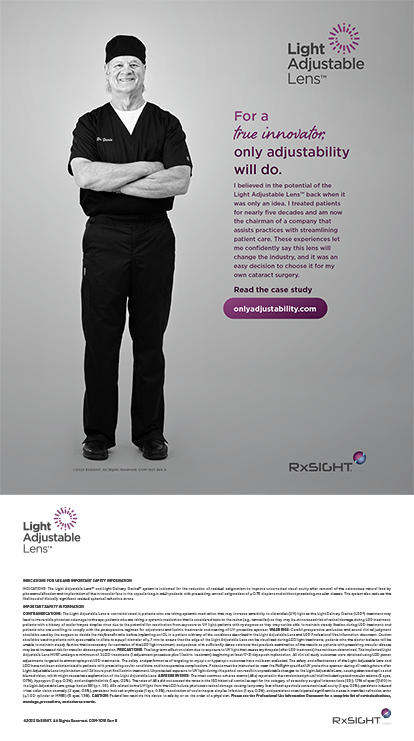
US residency training is excellent, but it also has problems. A major one is a lack of real-world experience and perspective. For example, we residents generally are not exposed to private practitioners and their experiences, and most of our education involves a single company's products. We are exposed to one phaco platform, one surgical microscope, and one IOL. The reason is that teaching institutions generally need to seek the best deal, but the result is biased education.
With that introduction, it is ironic but nevertheless true for me to state that industry involvement can help.
A SUPPORTING EXAMPLE
Last autumn, I traveled to Tampa, Florida, to take part in Bausch + Lomb's (B+L's) Surgical Resident Mentor Program. Residents from all over the country gathered to hear world-class experts in ophthalmology discuss the intricacies of cataract surgery, from the initial consultation to postoperative care. Attendees spent the first day of the program touring B+L's IOL manufacturing facility. Before then, I had thought these devices were made by robots, not laboriously assembled by a human being. I certainly will not accidentally drop an IOL on the floor again.
That afternoon, we visited The Eye Institute of West Florida, where we observed live laser cataract surgery on the TrueVision 3D Visualization and Guidance System (TrueVision Systems). In addition to hearing the surgeons describe each step of the procedure and provide tips in real time, my fellow residents and I were able to ask questions.
That evening, each of us met our “surgical mentor” for the weekend. Parag Majmudar, MD, then set about teaching my program director, Bethany Markowitz, MD, my co-resident, and me anything and everything we wanted to know about refractive cataract surgery. He spent hours talking with us about different surgical scenarios and his approach to them. We received real-word advice from a surgeon in the private sector who never attempted to persuade us to use a certain product.
The second day of the program included 5 hours of lectures on standard and refractive cataract surgery, and my fellow attendees and I got to hear a variety of opinions from a group of experts. The morning lectures ended with videos from the faculty members. The pearls they shared were excellent, but I particularly admired the faculty's willingness to discuss their mistakes with us and explain what they learned from them. In so doing, they helped to prepare me for complex cases and made me realize that experts are not perfect.
That afternoon, my fellow attendees and I entered a large exhibit hall in which about 20 phaco machines had been set up. Whether we had ever operated before or not, we were instructed and helped through cases. Sitting beside me, my mentor watched through the teaching microscope and gave me cutting-edge tips on my techniques. I spent around 4 hours executing cataract surgery and learning how to perform bimanual phacoemulsification, pars plana vitrectomy, and limbal relaxing incisions. As I completed each case, a B+L staff member would clear the surgical field and set up a fresh Kitaro eye (FCI Ophthalmics).
The program concluded with a dinner where residents sat with faculty and were able to discuss informally the everyday life of an ophthalmologist.
At a Glance
• Residents generally are not exposed to private practitioners
and their experiences, and most of their
education involves a single company's products.
• Industry-sponsored mentorship programs expose
attendees to a variety of experts' advice and experience
and provide an opportunity for hands-on,
supervised training.
• Residency programs cannot succeed without the
involvement of ophthalmologists in private practice
as well as academia.
CONCLUSION
Obviously, an industry-sponsored event will use that company's products, but the faculty's discussion can cover a wide range of subjects and the real-world experiences of ophthalmologists. Certainly, attending events supported by other companies would help residents understand today's breadth of technologies and techniques.
I must emphasize that these programs cannot succeed without the involvement of ophthalmologists in private practice as well as academia. By dedicating their time and sharing their experience and expertise with a local residency program, ophthalmologists foster the next generation of physicians and the future of their profession. n
Michael Patterson, DO
• chief resident, Palmetto Health/University of South Carolina
School of Medicine Department of Ophthalmology
• captain, South Carolina Army National Guard, Columbia,
South Carolina
• (931) 260-8069; mdpatte@gmail.com
• Financial disclosure: None acknowledged


